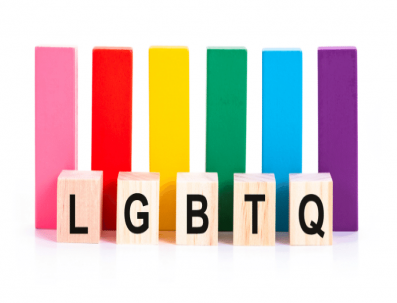
Impact of Indian Corporate policies for the LGBTQ+ community
In India, the conversation around social biases is still evolving. Many of us come from backgrounds where non-heteronormative orientation is still taboo. Considering the diverse backgrounds of corporates, employee sensitisation and awareness are important for the LQBTQ community in Indian companies.
Companies have become more open to LGBTQ employees since 2018 after the country's highest court effectively abolished a colonial-era law that criminalized same-sex relations. As diversity and inclusion became feel-good topics, many Indian corporates moved toward gender-neutral hiring, which is a crucial aspect of Corporate Social Responsibility(CSR). Trying to make their organizations more LGBTQ-friendly.
But sadly, in a recently conducted survey on our LinkedIn platform, we found out that almost 70% of voters believed that there has been no significant effort in the direction of lesbian, gay, bisexual, transgender, queer, and others (LGBTQ+) inclusion in Indian corporates. This highlights the need for Corporate Social Responsibility to be taken seriously by companies when it comes to creating an inclusive work environment.
Sure there are some big organizations making special programs to bring inclusivity to their organization, but a solid foundation is still missing.
Going beyond policies
Statements and policies are definitely a good way to start talking about inclusion. The roadmap to inclusivity will begin with companies changing their policies or creating new ones in order to provide a safe environment for LGBTQ employees. To treat them equal and give them the same benefits as all other employees. For example, it can start with minor changes like replacing the word 'husband/wife' with 'partner' in benefits policies or medical claims.
The next step after making these policies is effective implementation. The workforce is dynamic and comes with its own set of beliefs that can impact the environment of the organization widely. This means right policies along with the right communication is another important aspect of inclusion.
Inclusion and acceptance
While policy changes are major steps, the bigger challenge can be changing the attitudes of existing employees and managers to help them become more welcoming of LGBTQ workers.
Creating a very open and approachable environment can help to change it from shock to understanding. In fact, today’s millennial and Gen Z population wants to work with an organization that is inclusive. Because being seen, respected and appreciated for who they are, beyond a gender identity gives them confidence. So appropriate initiatives have to be taken to make existing employees or senior employees more acceptable to this fresh change.
Create a Supportive Environment
Even if sometimes it may require an extra effort to bring in diverse staff, organizations should not hesitate to go ahead. Of course, every new thought brings some kind of obstacle, but we have to push it down and create an inclusive culture. To ensure that LGBTQ staff can thrive at the company, it's important to provide support especially by checking that everyone is on board with the vision of nondiscrimination. Like-minded employees and allies can come together within groups to organize events, share information, create awareness and make people feel at home. So the benefits of having good talent can be reaped by both employees and organizations.
TeamLease Education Foundations feels it is our human duty to push social boundaries and make Indian corporations a place of diversity, equity and inclusion.
What are your thoughts on the Indian corporate policies for the inclusion of the LGBTQ+ community? What exactly is stopping corporations from achieving inclusion? And how can we make it better?
Share your thoughts in the comment section. We’d love to hear from you.





